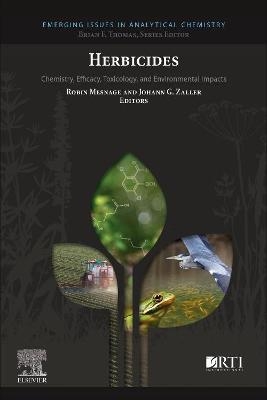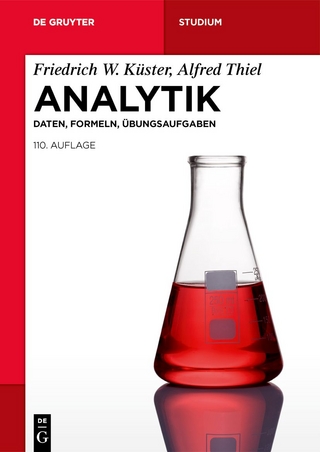
Herbicides
Elsevier Science Publishing Co Inc (Verlag)
978-0-12-823674-1 (ISBN)
The use of herbicides is an essential pillar of modern agricultural production systems. Weeds, if uncontrolled, would reduce crop yield and result in massive economic damage. Recently, the heavy reliance on single herbicides has been linked to the development of weed resistance. To combat resistant weeds, farmers are advised to use a mix of several herbicides and to increase herbicide application rates. As a result, the toxicity of herbicides on human health and the environment has become a controversial topic.
Dr. Robin Mesnage is a toxicologist in the Department of Medical and Molecular Genetics at King’s College London. His research focus over the last 10 years has been on the safety evaluation of pesticides. He has published more than 50 scientific articles on the subject. He specialises in using molecular profiling and genomic science to improve the sensitivity of chemical toxicity testing and better predict health risks arising from pesticide exposure. He also provides expert consulting on the risk assessment of pesticides and services to clinicians, including the analysis of complex biological data such as DNA sequencing of the gut microbiome. Dr. Johann G. Zaller is an ecologist at the Department of Integrative Biology and Biodiversity Research at the University of Natural Resources and Life Sciences Vienna in Austria. He studies effects of land management and global change factors on organisms, ecosystem processes, and services. Within these topics, he has investigated effects of various pesticides on soil biota, amphibians, plants, and their interactions with other factors such as landscape structure, management intensity, temperature, and soil types. He has published 90+ papers and is currently an editorial board member of three journals. He also published popular science books on pesticides and their non-target effects in German, Italian and English.
1. A Brief History of Weed Control
2. Herbicide Use Patterns
3. Herbicide Mode of Action
4. Co-Formulants in Commercial Herbicides
5. Analytical Strategies to Measure Herbicide Active Ingredients and their Metabolites
6. Biochemistry of Health Effects in Mammals
7. Effects on Non-target Organisms and Ecosystem Functions
8. Insights from Political Economy for the Future of Weed Control
| Erscheinungsdatum | 02.06.2021 |
|---|---|
| Reihe/Serie | Emerging Issues in Analytical Chemistry |
| Sprache | englisch |
| Maße | 152 x 229 mm |
| Gewicht | 590 g |
| Themenwelt | Naturwissenschaften ► Chemie ► Analytische Chemie |
| ISBN-10 | 0-12-823674-4 / 0128236744 |
| ISBN-13 | 978-0-12-823674-1 / 9780128236741 |
| Zustand | Neuware |
| Informationen gemäß Produktsicherheitsverordnung (GPSR) | |
| Haben Sie eine Frage zum Produkt? |
aus dem Bereich


